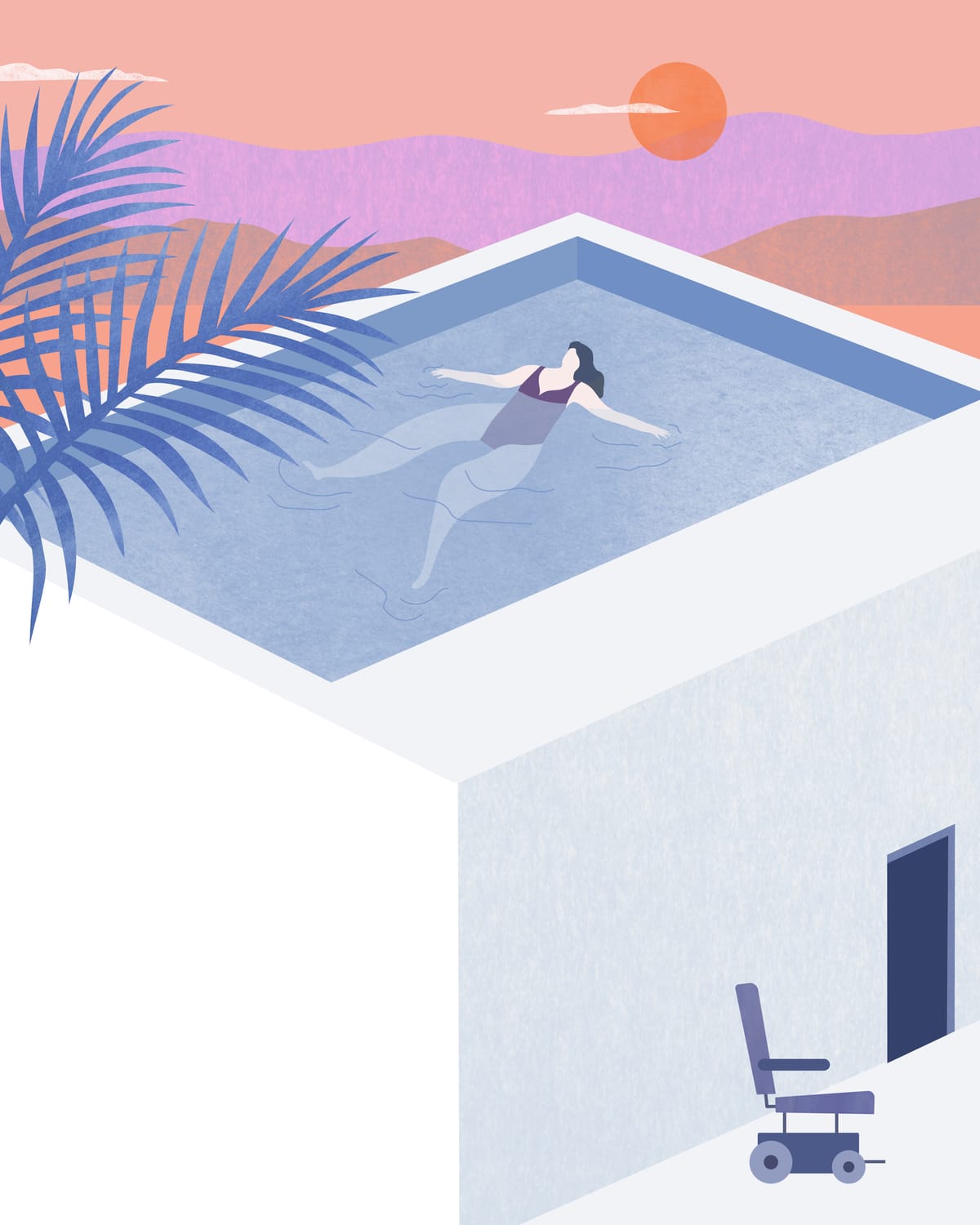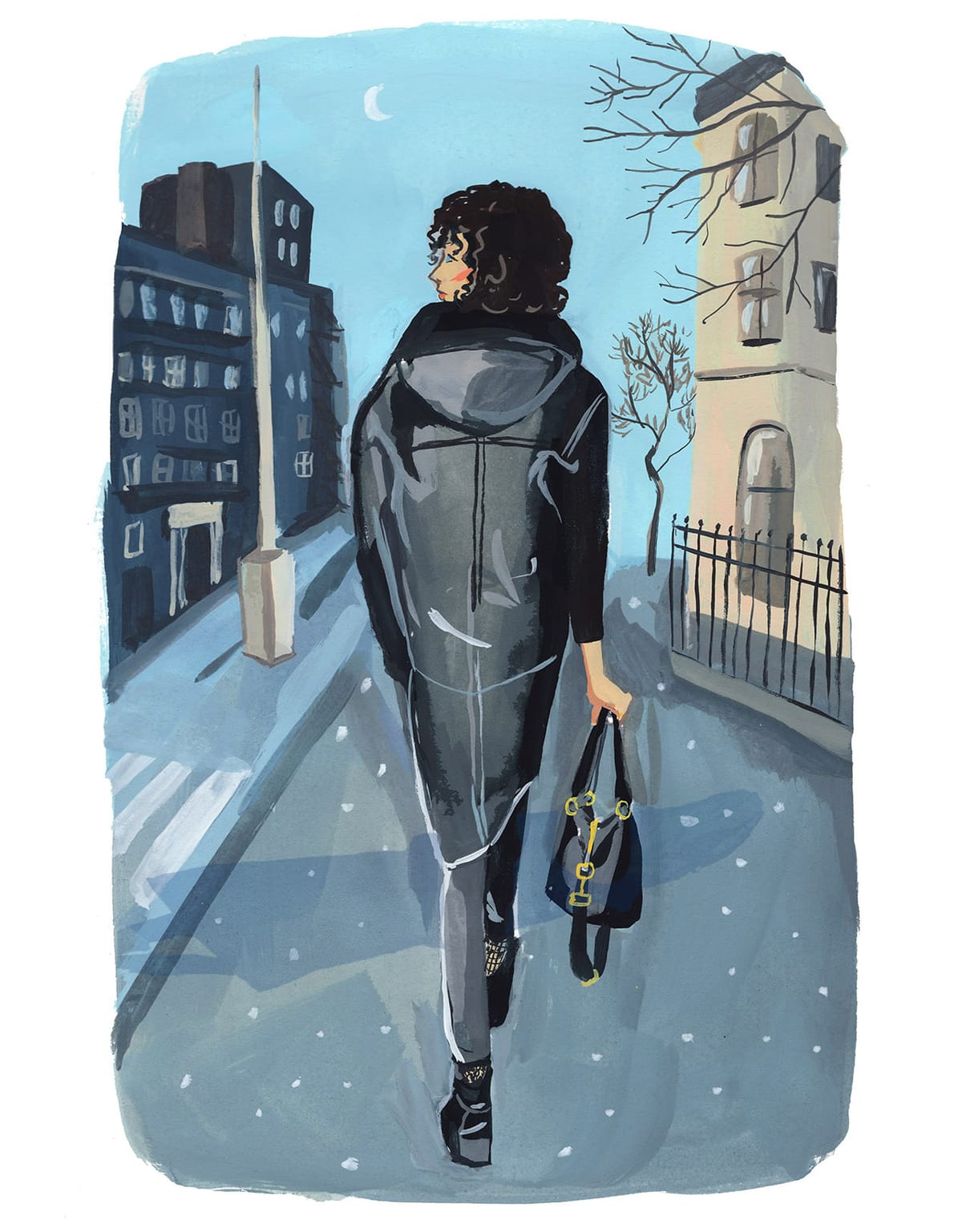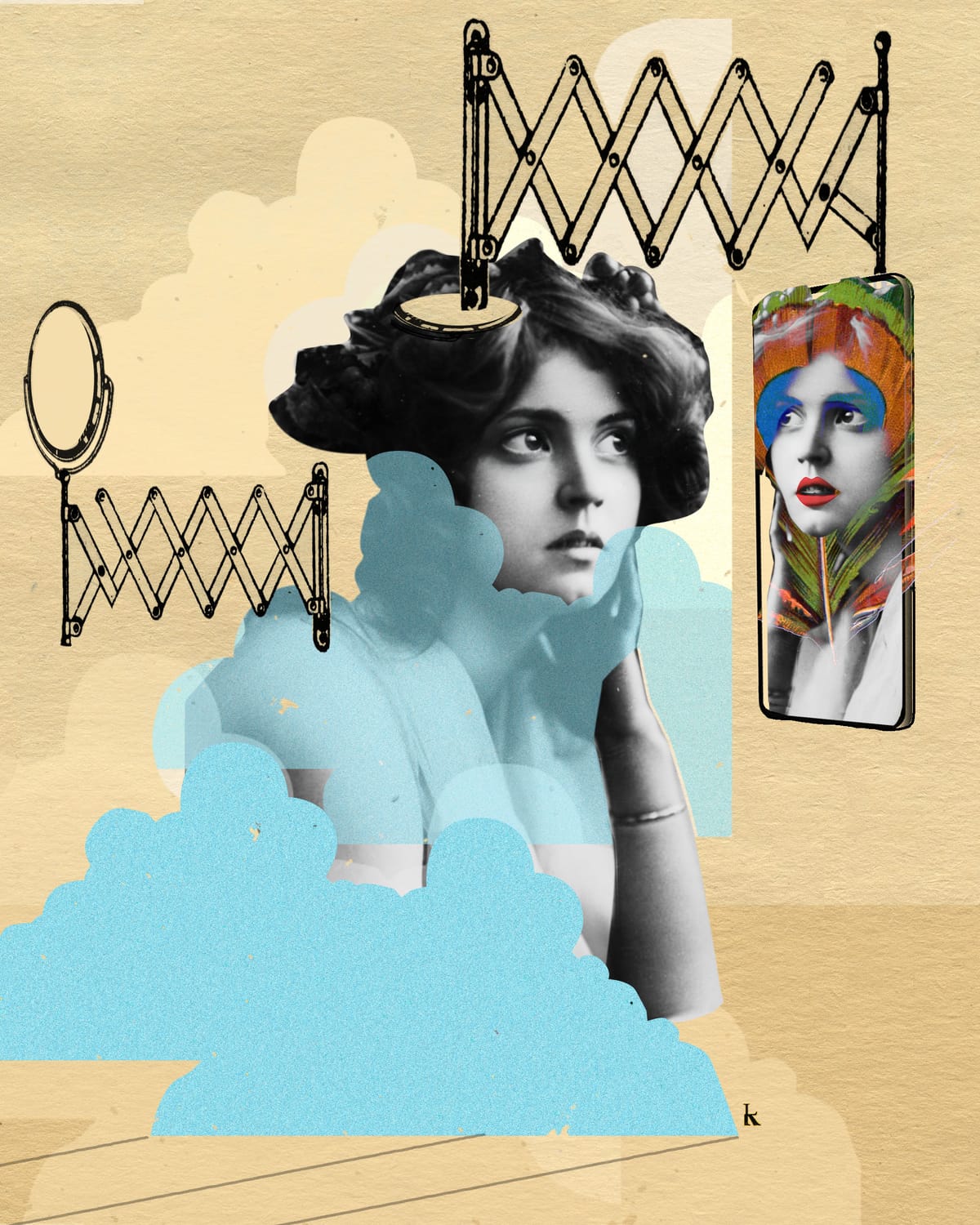Disabled in a Swimsuit
I can’t explain how being noticed beside a pool is materially different to being noticed in the snacks aisle at the supermarket. But it is.

This piece was first published on The View From Down Here, a Substack covering the unvarnished truth of disability by the U.K.-based writer, Lucy Webster. It is republished on The Persistent with Lucy's kind permission. You can subscribe to The View From Down Here here. Or you can buy Lucy’s book by the same name here.
I tend to be hyper-aware of my body when I’m on holiday.
Much of this is prosaic—I think about it more because I’m using it more, whether that’s the extra effort of standing up in a bathroom that lacks grab-rails, adjusting to my travel wheelchair, or swimming for the first time in a while. I am constantly figuring out the easiest way to do things, and so obviously I am paying more attention to my body than I do at home, where the use of my body is routine and (mostly) straightforward. (Side note: If anyone with CP (cerebral palsy) has worked out how to get—and stay—comfortable on a sun lounger, call me.)
But I don’t think my awareness of my body on holiday is solely down to using it more. There’s other stuff going on. Swimming, I think, plays a complicated psychological role.
Part I: The Swimming
For me, it is two things at once.
First, frustration: Trying to force my limbs to coordinate so that each stroke actually works, a frustration made worse by the fact that one hour I can control my breathing and the next, inexplicably, I can’t.
But secondly, freedom. The water is the only place I can hold myself up or move with ease. After a few days, I re-find my “pool legs,” and the water becomes a place I can move with something that feels like gracefulness (granted, it may not look like it). Being in the water is instant, glorious pain relief, so potent it makes me feel high on the sensation of my coiled muscles finally unfurling. When I come up from under the water, my friends laugh at the childish grin on my face, a combination of joy at the freedom from pain and being pleased as punch that I have not yet lost the ability to occasionally command my body.
It’s not an uncomplicated freedom, though. Along with the aforementioned frustration when coordination eludes me, the feeling of freedom is itself tinged with other emotions. While I marvel at the pain relief, I am aware that (for reasons too complicated and boring to discuss here) I deny myself this relief in everyday life by refusing to go swimming in London, where I live. (Put another way, I only go swimming on holiday.)
There is also the weird, but nevertheless true, psychological quirk that means I only realize how much pain I’ve been in when the pain goes away, which causes a bit of a reckoning with the old existing-in-a-body chestnut. And then, just to add to my general confusion about the situation, I find myself wondering if being proud and pleased about my ability to swim means I am still holding on to some ableist narratives in which being able to do more holds (bullshit) value and prestige?
Friends, I have no answers to these conundrums, but I reckon the fact that I can recognize and articulate them without getting anxious is probably a good thing.
Part II: The Swimsuit
And then, quite apart from the actual act of swimming, there is the fact that I am wearing a swimsuit.

As much as I would like to pretend that this has absolutely no bearing on how I feel, that would be a lie, because I don’t exist in a separate vacuum away from the rest of society. My problem is not that I don’t like how I look in a swimsuit. (In fact, thanks to years of immersion in the fundamentals of disability justice, I have as healthy a body image as anyone I know. I would go so far as to say I look good in a swimsuit.) No, the problem, if it can be called that, is that I am profoundly aware that you—and I—never see bodies like mine in a swimsuit. Disabled women’s bodies are hidden in general, but completely invisible when it comes to anything remotely revealing. And yet, here I am, swimsuit on, and disability as visible as it could possibly be. I’m not quite self-conscious, just incredibly aware that the sight is quite unusual.
"I imagine myself planting a flag in the sand on the beach just out of shot, one that says: Disabled bodies are here too..."
Having recognized this dynamic, I am bothered by the fact that it bothers me. After all, people notice my body literally everywhere I go, and I couldn’t and still can’t explain how being noticed beside a pool is materially different to being noticed in the snacks aisle in Sainsbury’s. But it is. So I decided to do something about it. I took some photos to share on social media.
Quite often when I take photos like this, I don’t like the results. Indeed, when I first saw this one, the very first thing I noticed was that you can see the curve of my spine and the unevenness of my hips. And then I thought: What the actual hell?
Everything about this photo is lovely. I am laughing because I am looking at my friend, Tilly, one of my favorite people on earth. The pool looks divine. The sunset is giving everything a gorgeous dusky glow. I am obsessed with the color of my swimsuit. And I look happy and relaxed exactly because I am not trying to correct my spine or my hips. In other words, I am being myself. So on second thought, I like this photo. I like it precisely because it is real and open, and because it is proudly showing everything I have been taught to want to hide.
The complicated and conflicting ways I think about my body—frustration and celebration, wanting to ignore and acknowledge it—show that I haven’t got it all figured out. Body image is a slippery, changeable thing. But acknowledging this complexity and forgiving myself for not having the answers feels like a small victory. So, too, does my liking—or perhaps even loving—this photo. I imagine myself planting a flag in the sand on the beach just out of shot, one that says: Disabled bodies are here too, and you should see them in all their painful, resilient, beautiful glory.











